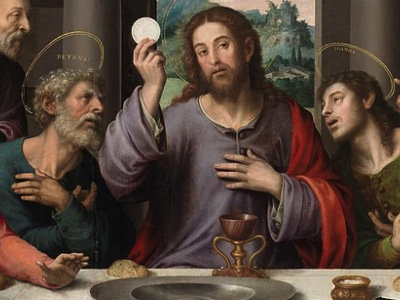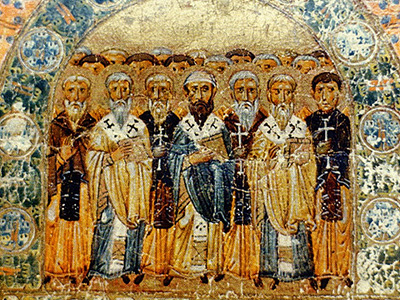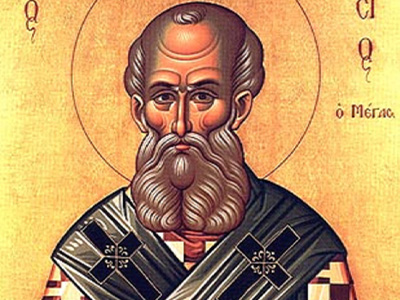Eucharistic Resources
The essential commitment and, above all, the visible grace and source of supernatural strength for the Church as the People of God is to persevere and advance constantly in Eucharistic life and Eucharistic piety and to develop spiritually in the climate of the Eucharist. With all the greater reason, then, it is not permissible for us, in thought, life or action, to take away from this truly most holy Sacrament its full magnitude and its essential meaning. It is at one and the same time a Sacrifice-Sacrament, a Communion-Sacrament, and a Presence-Sacrament. (Pope John Paul II, Encyclical, Redemptor hominis/Redeemer of man, 20)

The Holy Eucharist in Scripture

The Holy Eucharist in the Early Church Fathers

The Holy Eucharist in the Later Fathers

Learn About Eucharistic Miracles
In The Papal Magisterium
The Mystery of Faith, that is, the ineffable
gift of the Eucharist that the Catholic
Church received from Christ, her
Spouse, as a pledge of His immense love,
is something that she has always devoutly
guarded as her most precious treasure,
and during the Second Vatican Council
she professed her faith and veneration in
a new and solemn declaration. (cf. Constitution
on the Sacred Liturgy, 47)
Pope St. Paul VI, Encyclical Mysterium fidei/On the Mystery of Faith
. . the ministerial and hierarchical
priesthood, the priesthood of the bishops
and the priests, and, at their side,
the ministry of the deacons—ministries
which normally begin with the proclamation
of the Gospel—are in the closest
relationship with the Eucharist. The Eucharist
is the principal and central raison
d’etre of the sacrament of the priesthood,
which effectively came into being at the
moment of the institution of the Eucharist,
and together with it. Not without
reason the words “Do this in memory of me".
Pope St. John Paul II, Holy Thursday Letter Dominicae cenae (On the Mystery and Worship of the Eucharist)
The Church draws her life from the Eucharist.
This truth does not simply express
a daily experience of faith, baut
recapitulates the heart of the mystery of
the Church.
Pope St. John Paul II, Encyclical Ecclesia de eucharistia/Church of the Eucharist of the Church
Learn More



 Share
Share








